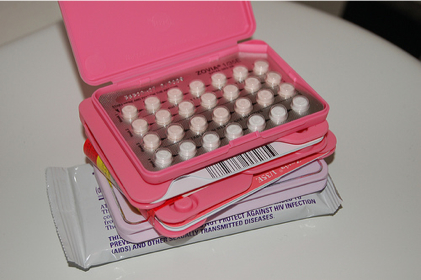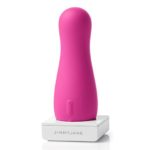Every few weeks, Dr. Vanessa Cullins, a board-certified obstetrician/gynecologist and vice president for medical affairs at Planned Parenthood® Federation of America, will be answering your questions on EMandLO.com. To ask her your own question, click here.
Dear Dr. Vanessa,
Is it possible to be on more than one contraceptive method at the same time? For example can I take the pill and also get an IUD? Or take the pill and get the shot or wear the patch?
— Backup Betty
Dear BB,
There’s a saying that too much of a good thing ain’t always good, and while some of us could certainly benefit by being more vigilant about using birth control, we also need to be careful not to put our health at risk when combining methods.
The main reason a woman might want to use two methods at once is to prevent pregnancy and sexually transmitted infections (STIs). The condom—male or female—is the best way to reduce your risk for an STI. Some women like to use other forms of birth control, such as spermicide, a diaphragm, an IUD, or implant along with condoms so they can have better protection against pregnancy than with a condom alone.
That said, you should never use male and female condoms together, neither should you use the female condom with the ring, because one can pull the other out of place or cause tearing. The diaphragm, cervical cap, and sponge are barrier methods that also provide some protection against STIs. But remember, these methods will only protect parts of the body that are covered—which in this case is the cervix. It all has to do with coverage, so if your bare skin comes in contact with active herpes sores or genital warts you are still at risk.
With regards to combining methods like the pill and patch or the birth control shot and the pill, each of these methods uses hormones to prevent pregnancy. You should not use multiple hormonal methods at the same time. Taking that much hormone places you at increased risk for serious blood clots—which are rare with hormonal contraceptives unless the doses are extremely high.
The IUD is a superb form of birth control, and it is highly unlikely that a provider would recommend using it in combination with any other method except a condom to prevent STIs.
Whatever your contraceptive choice, here’s to enjoying yourself, and best wishes for your good sexual health!
Vanessa
Planned Parenthood
Vanessa Cullins, MD, MPH, MBA, is a board-certified obstetrician/gynecologist and vice president for medical affairs at Planned Parenthood® Federation of America. She generously shares her medical wisdom with EM & LO readers every few weeks.

















